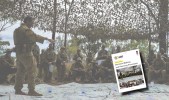Search
Using the filters to the left, click your selection, it will become bold and filter the results, click it again to remove that filter.
Abstract On the surface, the ‘zero tolerance’ policy of the Australian Defence Force (ADF) on substance abuse appears to be overbearing and paternalistic—out of step and out of touch in an age when individuals feel that they should be able to make informed decisions about what they do and what substances they put in their bodies. Examination of media releases, official statements, policies and freedom of information documents available through Defence or in open media in relation to drug use in the …
Lessons from the Military Innovation Literature There exists a consensus in modern military circles about the importance of innovation and adaptation. As the Chief of Army states, ‘The side that adapts fastest gains the edge.’ [1] Retired Major General Mick Ryan likewise argues that ‘an important virtue for military organizations to develop in peacetime, and nurture constantly in war, must be adaptability to unexpected events’. [2] Based on his experience as chief of staff of the Ukrainian army, Valery …
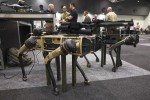
This is not an article about what the British Army consider the concept of ‘mission command’ to be; nor is it about how they approach its practice. Those who wish to explore that can simply read their doctrine. It is well written, well thought through, very readable and readily available. [1] I am, however, a great believer in the maxim that if you want to know where you are it’s a very good idea to understand how you got there and where you came from. In that respect, this article will make the (perhaps …
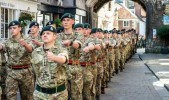
Theorising from the Past to Prepare for Future Wars Now, men, you answered your country’s call today. We’re all here to defend our homes and loved ones. I know you will not shirk that duty. With no guns, we are naked, but we have one invaluable weapon – ingenuity and improvisation. (‘That’s two’) I want you all to go to your homes. Gather what weapons you can and come back here in an hour’s time. From tonight, whatever the odds, we Englishmen … We British … We here are going to be able to say, ‘Come on, …
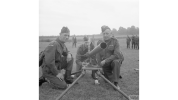
The Prussian-German Origins and Application of Mission Command Introduction Part of the problem for any military absorbing or adopting a foreign concept or methodology is that the significance and meaning are consciously or unconsciously filtered organisationally and culturally to become at best a hybrid of the original. Imported ideas can also clash with existing culture, while challenging long-established norms, resulting in compromises that pervert the original intention. The Anglo-American world’s …
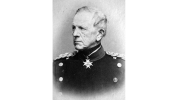
Alternative Views on the Nature of the Profession AUTHOR: Phillip Hoglin The term ‘profession of arms’ is relatively common throughout military discourse. However, while it appears frequently in doctrine, speeches, [1] articles and essays, until late 2021 the term was undefined by the Australian Defence Force (ADF). While it is now articulated in doctrine, the ADF’s definition has not yet been distilled for the Australian Army but left instead to notions of abstract intuition developed by individuals …
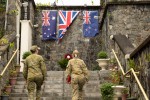
The most powerful tool we have in succeeding in this era of strategic competition is not the weapons we have, nor is it technology. It is the people … Chief of Army LTGEN Simon Stuart LANPAC 2024 Introduction One distinguishing element of a profession that sets it apart from other jobs is a commitment to ethical and moral conduct. The ‘profession of arms’ is like medicine, law and ministry—professionals who share a commitment to practising a role within the ethical bounds of agreed ethical frameworks. …
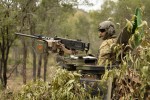
‘I think the greatest gift anyone can give to another is the desire to know, to understand.’ [1] —Louis L’Amour The Australian Army must improve its approach to teaching defence mastery to its junior officers (JOs) to better prepare Army for now and the future. In his keynote address to the 2024 Chief of Army Symposium, Chief of Army (CA) Lieutenant General Simon Stuart introduced his intent for a ‘wholesale, holistic review of our profession’. [2] In this speech, he asked: How do we best weave together …
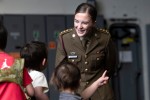
The Conceptual Evolution of the Australian Army’s and Australian Defence Force’s Operational and Tactical Planning Processes In the opening chapter of his seminal 1957 book The Soldier and the State , Samuel Huntington enduringly defined what makes the military a profession rather than a trade, vocation or job. Huntington defined a profession as uniquely manifesting three aspects: expertise, responsibility, and corporateness. [1] In the case of the military, the foremost aspect, he asserted, is: a central …
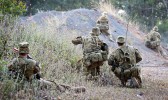
Introduction The Chief of Army’s directive to review the state of the Army profession divides the task into a review of Army’s jurisdiction, expertise, and self-regulation. One area of expertise that the Army prides itself on, and which tends at times to set it apart from other services, is in the area of tactical and operational planning. [1] Planning and decision-making is not something that is peculiar to the Army or to the military; planning is an activity that is a normal part of everyday living. …
